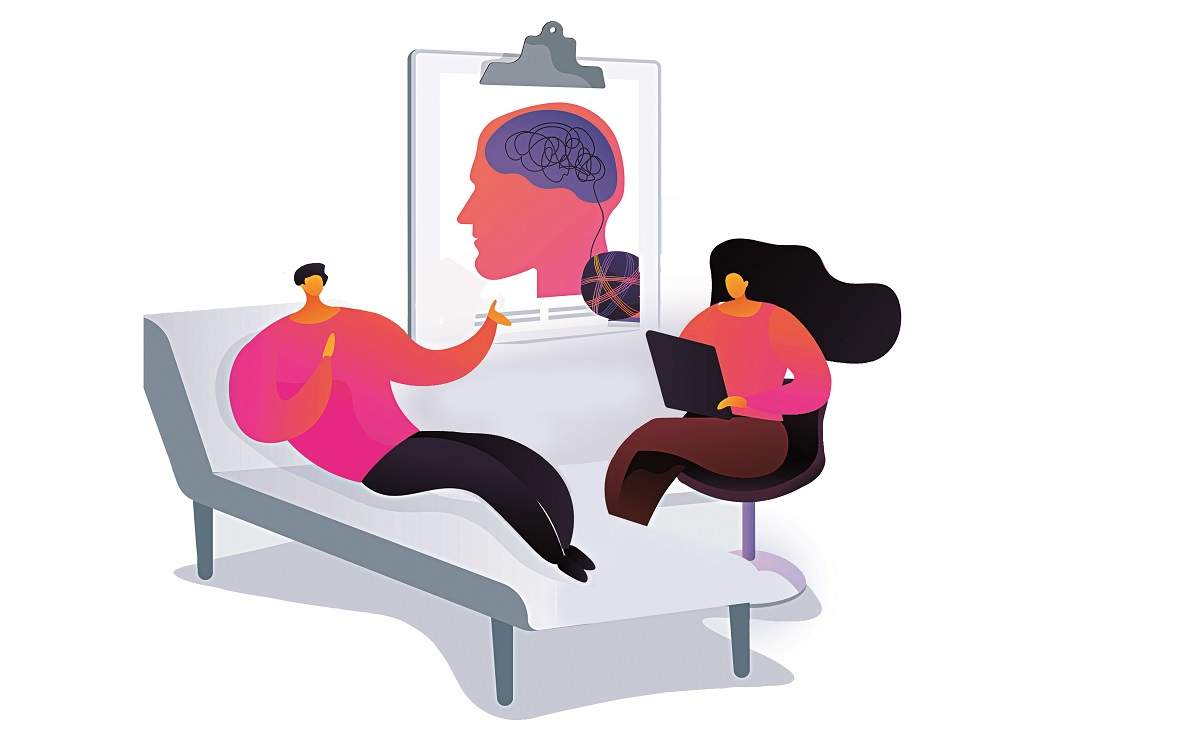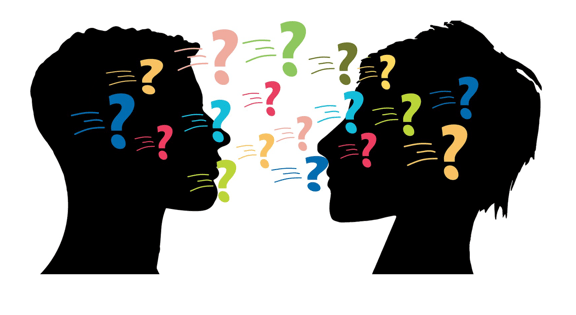Transactional therapy is a form of psychotherapy that focuses on the mutually beneficial aspects of transactions between people. The goal is to increase understanding and awareness in both parties who are involving. Another is to develop effective coping skills and interpersonal communication abilities. There are many different types of transactional therapies that exist today. This is including reality therapy, experiential therapy, and cognitive-behavioral therapy. This blog post will discuss what you need to know about this type of psychotherapy. This is so you can determine if it’s right for your situation!
Contents
What Is Transactional Therapy?
 Transactional therapy is a form of psychotherapy that focuses on the transactional relationship between therapist and client. This type of therapy helps to identify and understand the patterns that exist in this relationship. You can also use this therapy to resolve conflicts and improve communication. Transactional therapy often lasts for a number of sessions. Each session focuses on a different area of conflict in the therapeutic relationship.
Transactional therapy is a form of psychotherapy that focuses on the transactional relationship between therapist and client. This type of therapy helps to identify and understand the patterns that exist in this relationship. You can also use this therapy to resolve conflicts and improve communication. Transactional therapy often lasts for a number of sessions. Each session focuses on a different area of conflict in the therapeutic relationship.
This therapy is based on the theory that growth and change can only occur in a relationship. As such, transactional therapy helps to focus more than traditional psychotherapy. Each session dedicates to resolving specific issues within this relationship.
Transactional therapists are those therapists who encourage clients to take an active role in therapy and work collaboratively with them. This means that the therapist is less of a “sage on the stage” during sessions but rather engages in regular dialogues or discussions about what issues need to be resolved. The focus remains entirely focused on these specific issues without detours into other areas such as childhood experiences, relationships outside of therapy, etc.
Transactional therapists may use modeling techniques for demonstrating how different patterns can be dealt with appropriately within this relationship. For example, if one person tends to dominate conversations by talking over others then they will model how another client might handle similar situations; perhaps making comments where necessary instead of taking control completely which could put off partners when conversing together later on.
Transactional therapists may also use role-playing to help clients develop more appropriate responses when dealing with specific situations. The therapist will essentially play the role of a partner, friend, or colleague and respond in ways. These are by the client so they can learn how to deal with such interactions appropriately later on.
Working of Transactional Therapy

This type of therapy works by identifying the transactional patterns that exist between therapist and client. It is believed that these patterns play a role in shaping the therapeutic relationship and, as such. This therapy can help to resolve conflicts and improve communication.
The focus of transactional therapy is on resolving specific issues within the therapeutic relationship.
Transactional therapists use modeling techniques and role-playing to help clients develop better responses when interacting with others outside of therapy. These activities allow clients to see how different interactions might play out and how they can respond more effectively.
Transactional therapy relies heavily on the theory that change can only occur within a relationship. As such, the therapist and client work collaboratively to resolve conflicts and improve communication. This type of therapy is considered more focused than traditional psychotherapy as it deals exclusively with the issues that exist within the therapeutic relationship.
Sessions of Transactional Therapy

The sessions of transactional therapy are more focused than traditional psychotherapy and typically last for a number of sessions. Each session is dedicated to resolving specific conflicts or issues in the therapeutic relationship.
The sessions also rely heavily on the theory that change can only occur within a relationship. The therapist and client work collaboratively to resolve conflicts and improve communication outside of therapy sessions, with the focus remaining entirely on these specific issues without detours into other areas such as childhood experiences or relationships between members in families.
These sessions last about an hour long and take place once a week. The therapist and client will work together to resolve conflicts and improve communication. This type of therapy is considered more focused than traditional psychotherapy as it deals exclusively with the issues that exist within the therapeutic relationship.
Who Can Use Transactional Therapy?

Many people can benefit from transactional therapy. It is particularly useful for people who are experiencing relationship issues with family or friends, has difficulties communicating effectively in social situations, and/or struggle to cope when dealing with difficult interpersonal relationships at work. Some sections of people who can use this therapy are:
Adults
A section of adults can use transactional therapy including those who are experiencing relationship difficulties with family or friends and have difficulty communicating effectively in social situations.
Young People
Section of young people can use transactional therapy. This is if they are having problems at schools such as being bullied by other students or teachers, lack of motivation to complete homework, and/or do not seem concerned about poor grades even when failing classes. Another section for which it is useful is that the youngsters whose parents get divorced usually need this kind of help to understand how their behavior may affect them on a result level because sometimes these children tend to act out aggressively towards others but then again some may respond passively instead.
Children
Another group for whom this type of psychotherapy would be suitable include kids who suffer from autism (a developmental disorder that affects communication and social interaction). This therapy can help children learn how to better interact with others, understand their feelings, and regulate their emotions.
Employees
This type of therapy would be an ideal way for employees to express themselves and deal with issues that are taking a toll on their work performance. This includes individuals who worry too much about what others think, those who do not seem satisfied with their jobs even when receiving higher salaries than other colleagues, tend to withdraw from the group because they feel shy or embarrassed by certain situations but then again some may become overly aggressive towards them as well.
Is Transactional Therapy Effective?
 The effectiveness of transactional therapy has been well-documented through research. A study found that people who underwent transactional therapy showed significant improvements in their relationships with others, communication skills, and overall emotional wellbeing.
The effectiveness of transactional therapy has been well-documented through research. A study found that people who underwent transactional therapy showed significant improvements in their relationships with others, communication skills, and overall emotional wellbeing.
There is much research that supports the effectiveness of transactional therapy. In research, transactional analysis can successfully help to treat people who suffer from depression and anxiety disorders. They also say how many other studies have shown positive results with regards to treating eating disorders in women as well as reducing symptoms associated with schizophrenia, psychosis, and autism in children.
Benefits of Transactional Therapy

There are many benefits of transactional therapy. Some of these are:
Helps To Deal With Personal Conflict
This is one of the main benefits that many people report experiencing after undergoing Transactional Therapy. Clients say how they are able to deal with their personal problems and conflicts much better compared to before therapy. They also reported having fewer quarrels at home, work, or school, as well as feeling more understanding towards others in general.
Improves Communication Skills
Another major benefit of this type of psychotherapy is its effectiveness in improving communication skills between clients and therapists during sessions which allows them both to understand each other’s feelings better than ever before.
Helps To Overcome Anxiety Disorders And Depression
Another advantage of transactional therapy is it helps those who suffer from anxiety disorders (such as post-traumatic stress disorder) and depression by teaching them how to regulate their emotions, set healthy boundaries with others, and communicate better.
Allows Clients To Express Themselves More Freely
This type of therapy allows individuals to express themselves more freely than they would in other settings outside of a therapeutic one without the fear of judgment or ridicule from the therapist or anyone else. This can be very beneficial for those who have difficulty opening up about their feelings due to shyness or embarrassment.
Makes Clients Better Understand Their Shortcomings And Strengths
Another positive aspect of transactional therapy is that it allows people to realize their own shortcomings. It also helps to recognize and accept their strengths. It also teaches them how they can use these two things in order to improve themselves in the future when dealing with others, especially those closest to them like friends or family members.
Makes Clients More Self-Aware
This type of therapy also makes clients more self-aware as they learn to become aware of their own feelings, thoughts, and motivations. They also learn how to control their reactions better so that they can respond in a more positive way when interacting with others.
Limitations of Transactional Therapy

There are many limitations of transactional therapy. Some of these are:
Cost
This can be a major limitation. It is because most people cannot afford to undergo this type of psychotherapy due to its expensive cost. This is especially if they have insurance that does not cover it. This leaves many individuals who really need help with no other option but to look for free or low fee options. This may take them longer and make the process more complicated than it should be.
Time-Consuming
This type of therapy requires a lot of time. Most people can’t afford to take more than one day off from work so they have to schedule their sessions during the weekends when most businesses are closed or on lunch breaks which may not be enough for some patients depending on how severe their condition is.
Can Practise Only In Group Setting
This type of psychotherapy also needs to be in a group setting with other clients. These are those who have similar problems and issues as you do. It makes it difficult if you’re shy or feel uncomfortable around strangers. This is because it would make things harder for you especially. It is because all eyes focus on what happens between participants and the therapist.
Make Clients Feel Uncomfortable
This therapy can also make clients feel uncomfortable. This is especially if they are not interacting with other people. So it is best that the therapist would be able to manage and control this. It is by making sure everyone in the group knows what their role is.
Conclusion
In conclusion, transactional therapy is a very beneficial type of psychotherapy. This can help improve communication skills, regulate emotions, and make clients more self-aware. However, it does have some limitations like its high cost and the need for it to be done in a group setting. Despite these drawbacks, it is still one of the most popular forms of therapy used today due to its many advantages.
A Word From Therapy Mantra
Your mental health — your psychological, emotional, and social well-being — has an impact on every aspect of your life. Positive mental health essentially allows you to effectively deal with life’s everyday challenges.
Also, at Therapy Care, we have a team of therapists who provide affordable online therapy to assist you with issues such as depression, anxiety, stress, relationship, OCD, LGBTQ, and PTSD. You can take our mental health test. You can also book a free therapy or download our free Android or iOS app.


